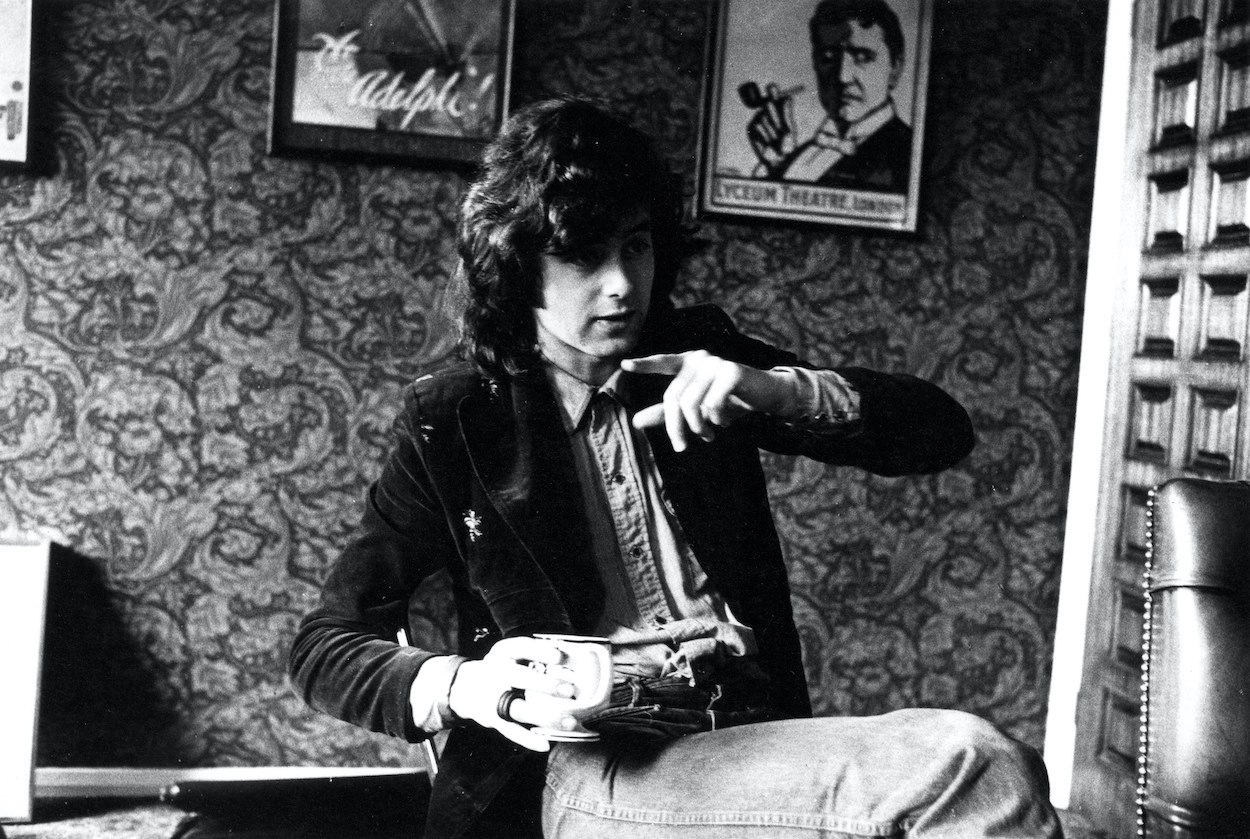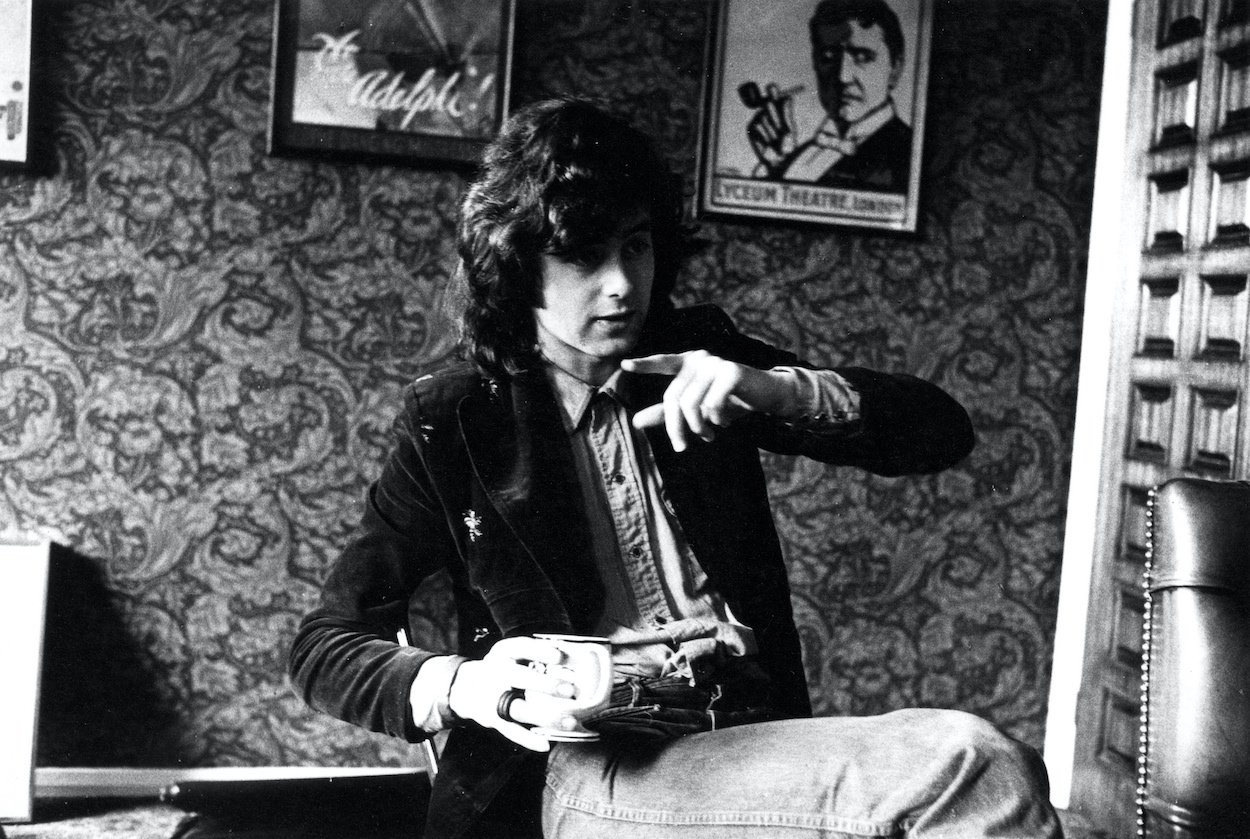
Jimmy Page Insisted Led Zeppelin Sign With Atlantic Records So He Didn’t Have to Share a Label With Eric Clapton’s Band
Jimmy Page did things his own way with Led Zeppelin. The band rarely released singles, and didn’t put out any in England after Page heard a butchered version of one song. Page footed the bill for Zep’s first album, which gave him 100% ownership of the music and let him shop around for a record label. When it came time to sign, Page insisted that Led Zeppelin sign with Atlantic Records so he didn’t have to share a label with Eric Clapton’s band.

Jimmy Page recorded the first Led Zeppelin album, and the group scored a major payday
Page constructed Led Zeppelin in the late summer of 1968 after the Yardbirds fell apart. Zep started working on their debut album by early fall. It came together incredibly quickly, and Page paid for the first record out of his own pocket.
The band felt they had something special, and Atlantic Records agreed. Led Zeppelin received the biggest advance Atlantic ever gave to a rock group, the equivalent of roughly $1.5 million.
Atlantic operated several imprint record labels under its umbrella. Still, Page insisted on signing with Atlantic so he didn’t have to share a label with Eric Clapton’s band or Sonny and Cher.
Page insisted Led Zeppelin sign with Atlantic so they didn’t have to share a label with Eric Clapton’s band, Cream
Atlantic Records housed artists such as Ray Charles and Aretha Franklin when Led Zeppelin sought a record label. Rubbing shoulders with highly-regarded and well-established artists was a priority for Page, he told Guitar World (via George Case in Led Zeppelin FAQ):
“I made it very clear to them that I wanted to be on Atlantic rather than their rock label, Atco, which had bands like Sonny and Cher and Cream. I didn’t want to be lumped in with those people — I wanted to be associated with something more classic.”
Jimmy Page explains why he insisted Led Zeppelin sign with Atlantic Records
Page knew what he wanted, and he got his way putting pen to paper for Atlantic Records. Atco wasn’t necessarily Atlantic’s dumping ground for lesser acts, though. Artists such as Otis Redding and Buffalo Springfield released albums on Atco in the late 1960s. Page was also a little harsh on Clapton’s Cream, which sent its 1968 Atco album Wheels of Fire to No. 1 thanks to hit songs “White Room” and “Crossroads.”
Page calling out Clapton’s band might have made things awkward between them. After all, Page almost replaced Clapton in his first band.
Page was recruited to replace Clapton in the Yardbirds
Clapton preceded Page to guitar god status by a few years, but he also had a head start.
As Page paid his dues as a session musician, Clapton starred for the Yardbirds. That put Slowhand at the front of one of England’s biggest bands while Page toiled in relative obscurity. Page had a chance to join the Yardbirds when their manager recruited him.
“He [Yardbirds manager Giorgio Gomelsky] had asked me to join the Yardbirds at one point,” Page said during a sit-down at the Fender guitar factory (via YouTube). “I didn’t feel very comfortable about it because I knew Eric didn’t know.”
Page said a spot in the Yardbirds opened up again, and he declined again. But he didn’t walk away empty-handed as his friend, Jeff Beck, gave Page a gift for recommending him instead.
It all worked out for Page in the end. He eventually earned a spot in the Yardbirds, formed Led Zeppelin, and got his way when he insisted they sign to Atlantic Records.
For more on the entertainment world and exclusive interviews, subscribe to Showbiz Cheat Sheet’s YouTube channel.


